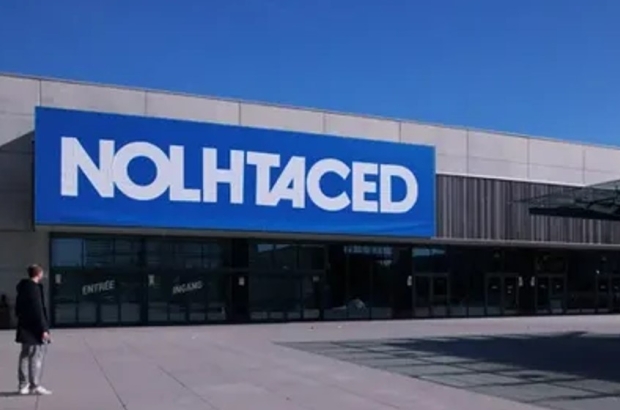- Daily & Weekly newsletters
- Buy & download The Bulletin
- Comment on our articles
Brussels Decathlon store changes name to promote rent-and-return policy
The Decathlon store in Evere has temporarily changed its name to Nolhtaced (pronounced Noltakket), a reverse spelling of the original name, as a means to promote its rent-and-return programmes.
Decathlon is now buying back sports equipment to encourage reuse and increase purchasing power, according to a press release from the company.
“Decathlon started 25 years ago in Belgium with the aim of making sport accessible to as many Belgians as possible – that mission remains, but times are changing,” said Arnaud De Coster, manager of the second-hand programme for Decathlon Belgium.
“We also want to make sure everyone can play sports in an environmentally conscious way. To grow sustainably, we are therefore fully committed to our buy-back service, our second-hand offer, rental and repairs.”
Arguing that the move was more than a simple publicity stunt, De Coster emphasised that the main aim is to “make our buy-back service known to the widest possible audience and thus reuse as many items as possible, lower the threshold for second-hand and increase purchasing power”.
Certain Decathlon stores allow customers to sell their old or unused sporting equipment, which they then repair and resell second-hand under warranty.
The goal is to reuse as much equipment as possible and thus reduce the impact on the environment and avoid waste, Decathlon explained.
A secondary goal is to give less-affluent customers the ability to purchase sports equipment at a lower price.
In a recent survey commissioned by Decathlon of more than 1,000 Belgians, 30% said they were putting off buying new sportswear and equipment due to the increased cost of living and 20% said they buy second-hand equipment.
“We not only see a new business model in second-hand sales, but above all we see the need to do better,” said Joeri Moons, sustainability manager for Decathlon Belgium.
“Our classic consumption pattern has to change: buy fewer new products and resell, repair or rent more older material. Consumers are also starting to look at stuff differently than before. It is less about possession and more about use.”
The idea is to switch to a more circular economy, whereby existing materials are reused and recycled as much as possible as an alternative to producing brand-new materials.
“We want to encourage product reuse as much as possible and remain responsible throughout the entire life cycle of our products. That also means designing our products to last,” said Moons.
Decathlon already bought back 26,000 items during a test phase this year so far, but wants to scale up the initiative by putting it in the spotlight for a month, after which point its name will return to the usual.


















